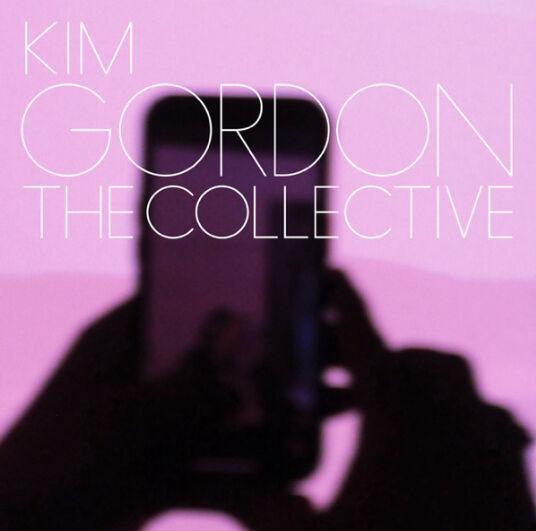The dissolution of the influential and acclaimed noise rock group Sonic Youth after three decades, while initially disappointing to see, has not been without its unintended benefits. Undoubtedly, key members Thruston Moore and Kim Gordon are both typically remembered for their contributions towards making some of the most recognizable noise rock and alternative rock albums of the 80s and early 90s. Outside of their work together, however, they helped contribute to the success of many of their contemporaries and established their talents in side projects and solo efforts.
Gordon’s first solo album, released in 2019, stands as a respectable and impressively youthful project coming from a woman with decades worth of experience and reputation in the alternative rock scene. From this debut, one would expect an artist of her era and genre to further build upon the trademark harsh guitar sounds she established in her earlier works and this solo outing. That is, one who is unfamiliar with Kim Gordon would expect that. Even with a reputation as an innovative rock artist, very few could have predicted such a change in sound from her debut five years ago. In an unexpected move, Gordon delves into trap and delivers a disorienting yet cathartic record.
A jump from one genre an artist has become comfortable with to a more stylistically different genre always carries some form of risk, especially from rock to hip-hop or, in Gordon’s case, a modern trap sound. Despite the musical lineage and ties between rock and hip-hop that can be traced back to the early 80s, rock-rap crossovers still often have the potential for disastrous or embarrassing results. The end product will be the reflection of either an earnestness towards experimentation or a cynical attempt at relevancy. Fortunately, what “The Collective” instead represents is a willingness to embrace a modern genre of music with a pre-established sound of rock that, when combined with Gordon’s lyricism, creates an experience that is as hellish and harsh as it is dominant and assertive.
Rather than clashing with modern trap aesthetics, the harsh walls of distorted guitar noise are built around the trap percussion, resulting in industrial beats that boast just as much intensity as many other newer trap artists, if not more. Where Gordon sets herself apart further, however, is her vocals. For the most part, the vocal performances lack any studio embellishments or auto tune used by most artists for a stronger sense of melody, and Gordon does not follow much of any type of flow for most of the tracks. As a genre that places emphasis on flow, melody and energy, such a decision might lead to a dull experience were it not for the even stronger emphasis in the genre towards production.
Additionally, these monotone vocals complement the dejected and troubled tone of the lyrics. The record’s themes of modern-day escapism from issues of masculine and feminine self-identity, sexual promiscuity, and vulnerability are simultaneously scathing of the past and present yet anxious and uncertain of the future. From the opener “BYE BYE”, Gordon hits listeners with a barrage of makeup products and increasingly first-world commodities filling up the minutia in daily life “Sleeping pills, sneakers, boots/black dress, white tee, turtleneck, IBook, power cord, medications”.
Following this, “The Candy House” features more familiar synths and percussion used in modern trap songs while Gordon identifies the object of her ire as this “collective” becoming continually obsessed with escapism in the commodities of modern life. The third track “I Don’t Miss My Mind” further details this loss of identity and autonomy in exchange for security within the collective influenced by industries of empty promises. From here, the seething contempt of the misogyny perpetrated by the rhetoric of toxic influencers is on full display in the next song, “I’m A Man”. The fifth track “Trophies” and sixth track “It’s Dark Inside” present metaphors for sex that extend criticisms towards American issues of improper sex education and gun control.
Starting off the second half of the album, “Psychedelic Orgasm” paints a vision of Los Angeles that is as mired in sex and drugs as the title suggests, presenting even more methods of modern escapism people resort to. The track following this titled “Tree House” details a trip with friends interrupted by the intensely chilling presence of a man ogling at Gordon, and the next track “Shelf Warmer” highlights her feelings of frustration that come from “gift shop gifts” and presents given to her that were clearly low effort or meant for the other person. The penultimate track “The Believers” and the closer “Dream Dollar” address the album’s themes of manipulation, empty promises of financial success, and escapism found in the collective that continues to dive further into its own delusions and lies disguised as truths.
Quoted from the album’s Bandcamp page, Kim Gordon has stated, “On this record, I wanted to express the absolute craziness I feel around me right now… This is a moment when nobody really knows what truth is, when facts don’t necessarily sway people, when everyone has their own side, creating a general sense of paranoia. To soothe, to dream, escape with drugs, TV shows, shopping, the internet, everything is easy, smooth, convenient, branded. It made me want to disrupt, to follow something unknown, maybe even to fail.” By choosing to disrupt herself from this collective in which its members are all too content to escape into their own individual beliefs, Gordon embarked on a great risk in this genre switch-up that has resulted in a unique trap experience. One that presents sonically harsh distortion and modern beats that serve as the instrumentals to a series of tracks documenting her disillusionment, confusion, and critical nature towards this collective while giving off as much swagger and boisterousness as more seasoned trap artists do.
Genre: Trap, Noise, Industrial Hip-Hop







